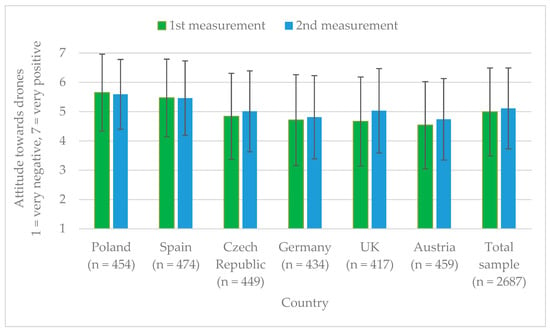Feature Papers of Drones Volume II
A topical collection in Drones (ISSN 2504-446X).
Viewed by 1871Editors
Interests: photogrammetry; laser scanning; 3D modeling; topography; cartography
Special Issues, Collections and Topics in MDPI journals
Interests: photogrammetry; drones; laser scanning; radiometric calibration; remote sensing; RGB-D sensors; 3D modeling; mobile mapping; metrology; verification; inspection; quality control
Special Issues, Collections and Topics in MDPI journals
Topical Collection Information
Dear Colleagues,
As editors of Drones, we are pleased to announce a topical collection entitled “Feature papers of Drones—Volume II”. This topical collection will be a compilation of articles, communications, and review articles from top researchers describing novel or new cutting-edge designs, developments, and/or applications of unmanned vehicles (aerial, terrestrial, or water/underwater). We welcome the submission of manuscripts from Editorial Board Members and outstanding scholars invited by the Editorial Board and the Editorial Office.
Prof. Dr. Diego González-Aguilera
Dr. Pablo Rodríguez-Gonzálvez
Collection Editors
Manuscript Submission Information
Manuscripts should be submitted online at www.mdpi.com by registering and logging in to this website. Once you are registered, click here to go to the submission form. Manuscripts can be submitted until the deadline. All submissions that pass pre-check are peer-reviewed. Accepted papers will be published continuously in the journal (as soon as accepted) and will be listed together on the collection website. Research articles, review articles as well as short communications are invited. For planned papers, a title and short abstract (about 100 words) can be sent to the Editorial Office for announcement on this website.
Submitted manuscripts should not have been published previously, nor be under consideration for publication elsewhere (except conference proceedings papers). All manuscripts are thoroughly refereed through a single-blind peer-review process. A guide for authors and other relevant information for submission of manuscripts is available on the Instructions for Authors page. Drones is an international peer-reviewed open access monthly journal published by MDPI.
Please visit the Instructions for Authors page before submitting a manuscript. The Article Processing Charge (APC) for publication in this open access journal is 2600 CHF (Swiss Francs). Submitted papers should be well formatted and use good English. Authors may use MDPI's English editing service prior to publication or during author revisions.







